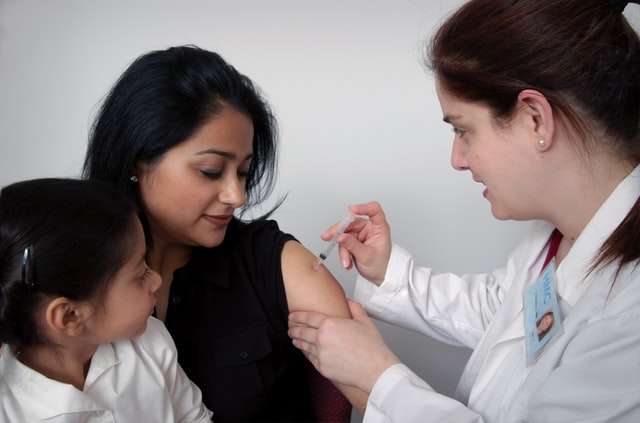Very friendly and super helpful with any questions I had. Very clean and calm atmosphere, all the staff were kind.
Read More
Immigration Medical Exam: Everything You Need to Know
Posted: Nov 30th, 2021 at 11:39AM

A medical exam is one of the requirements in the immigration visa application process. Its purpose is to identify applicants who may have prohibited (formally termed "inadmissible") health conditions as stipulated by the U.S. Citizenship and Immigration Services (USCIS) and the Department of State (DOS). This is a requirement of INA Sections 212(a) and 221(d). Rest assured that even if an applicant fails to be approved for an immigration visa, all medical forms will remain confidential as per INA Section 222(f).
Note, though, that an immigration medical exam differs from a full physical exam. It shouldn't be treated as a substitute for one. It's only meant to screen for specific conditions that are relevant to U.S. immigration laws. The attending doctor (called a civil surgeon for domestic exams, and panel physician for overseas exams) is only expected to examine conditions required for U.S. immigration. They're not required to diagnose or treat any health concerns detected during the medical examination.
Who is Required to Take an Immigration Medical Exam?
The following sectors must undergo an immigration physical exam:
- Immigrants — medical exam to be conducted in the country they will be interviewed in, by panel physicians.
- Refugees — medical exam to be conducted in the country they will be interviewed in, by panel physicians.
- Status adjusters — medical exam to be conducted in the U.S., by civil surgeons.
A medical exam is not needed for non-immigrants, short-term transit visa holders, and other types of residents such as migrants who entered the country without inspection, including those with and without formal documentation.
Who Conducts the Immigration Medical Exam?
The USCIS authorizes specific doctors to perform the immigration medical exam. Medical exams conducted domestically in the U.S. are done by civil surgeons. For those performed overseas, outside the U.S. and its territories, they are conducted by panel physicians. They are approved by the DOS to provide a medical exam in line with the visa processing in the U.S. Embassy or Consulate abroad.
Refer to the USCIS website to find an approved doctor near you.

What Should You Expect During an Immigration Medical Exam?
An immigration medical exam typically involves the following steps:
- Physical exam, which usually includes checking the eyes, ears, nose, throat, extremities, lungs, heart, lymph nodes, and skin.
- Review of medical history.
- Testing for communicable diseases such as tuberculosis, gonorrhea, and syphilis, which might require a chest x-ray, urine test, and blood test.
- Checking for required vaccines, as stipulated by the Advisory Committee on Immunization Practices (ACIP).
After the medical exam, the attending doctor will complete Form I-693. In some countries, the panel physician sends the exam results directly to the U.S. Embassy or Consulate. In others, the panel physicians give the results to the applicant in a sealed envelope along with the x-ray, both of which the applicant must bring to their visa interview.
In the case of the latter, ensure that you secure a separate copy of the completed Form I-693 for your reference, as the USCIS will not accept the form if the envelope has been tampered with.
Vaccines Required for the Immigration Medical Exam
Depending on age, all applicants — including those applying for adjustment of status for permanent residency — must be vaccinated against the following vaccine-preventable diseases:
- COVID-19
- Measles
- Mumps
- Polio
- Rubella
- Pertussis
- Hepatitis A and B
- Tetanus and diphtheria toxoids
- Haemophilus influenza type B
- Meningococcal disease
- Rotavirus
- Varicella
- Pneumococcal pneumonia
- Influenza
Specific to COVID-19, the USCIS may issue a blanket waiver if:
- The vaccine is not appropriate for the applicant's age.
- They have a pre-existing medical condition that prevents them from being vaccinated.
- The vaccine is not routinely available where the civil surgeon practices.
- The scarcity of the vaccine will cause significant delay.
For most vaccines that entail a series (or two or more doses), only one dose is required for immigration purposes. Note, though, that you will need to present documentation formalizing that there was not enough time between doses to complete the series and indicating that additional doses are required to complete the vaccine series.
However, specific to COVID-19, immigration requires the vaccine to have been fully administered (either one or two doses, depending on the vaccine brand) before the medical examination can be deemed as complete.
If an applicant does not have a record of vaccinations, the panel physician will work with them to verify which vaccines they may need to adhere to the requirements.

Other Immigration Medical Exam Requirements
To procure the required DOS forms for the immigration medical exam, refer to the Department of State website. Keep in mind that personal and civil documents may vary by country and depend on availability. Processes for obtaining and submitting these documents may also differ, so overseas immigration applicants should ideally check with their local U.S. Embassy or Consulate.
Applicants are generally advised that these are their immigration medical exam requirements:
- Form I-693
- A valid government-issued ID with photo (ex. driver's license, passport); for applicants aged 14 years old and under, an ID documenting their full name, location, date of birth, and parent/s' full name will suffice (ex. birth certificate, affidavit)
- Immunization record
- Laboratory tests (based on specified age)
- Medical insurance card (if accepted by the selected doctor)
What May Cause You to Fail an Immigration Medical Exam?
The following inadmissible health conditions can be grounds for disapproval:
- Infectious or communicable diseases that are high-risk to public health and safety
- Failure to present proof of vaccination against vaccine-preventable illnesses
- Physical or mental disorders which cause harmful behavior
- Substance abuse or addiction
Specific to communicable diseases, tuberculosis, syphilis, gonorrhea, and leprosy are considered high-risk and significant to public health. This is why doctors specifically screen for these in the medical exam.
Two major disease categories may cause the failure of the immigration medical exam:
- Diseases that require quarantine, as stipulated by any Presidential Executive Order. This currently includes:
- Cholera
- Diphtheria
- Infectious tuberculosis
- Measles
- Plague
- Smallpox
- Yellow fever
- Viral hemorrhagic fevers (i.e. Ebola, Lassa, Marburg)
- Severe Acute Respiratory Syndromes (i.e., COVID-19, MERS, SARS)
- Influenza caused by novel or re-emergent influenza (pandemic flu)
- Events that are considered a Public Health Emergency of International Concern (PHEIC) by the World Health Organization (WHO) per the 2005 International Health Regulations (IHR). These include:
- COVID-19
- SARS
- Polio
- Smallpox
- Pandemic influenza
For U.S.-based status adjusters and other types of migrants in need of an immigration medical exam, e7 Health is here to help! Contact us today for same-day or next-day appointments.

I came to E7 health for a physical exam for employment. Staff was very professional, And I was in and out in thirty minutes
Read More
Staff was extremely friendly, I was able to walk in without an appointment.
Read More
Very friendly, informative, and well versed. Felt well taken care of by the doctor and all the staff. Fast, friendly, considerate, all staff met.
Read More
I was here for an employment physical. They are amazing! I was in and out in less than 10 mins.
Read More
J was super helpful. Very quick and easy.
Read More
Rachel was amazing and I was in and out so quick ! Ready to start my new job ! Thanks 🥰
Read More
J was awesome at talking me through my first time getting blood taken. The doctor that also did my physical was quick and very thorough when letting me know the next steps for getting the test results back :)
Read More
















